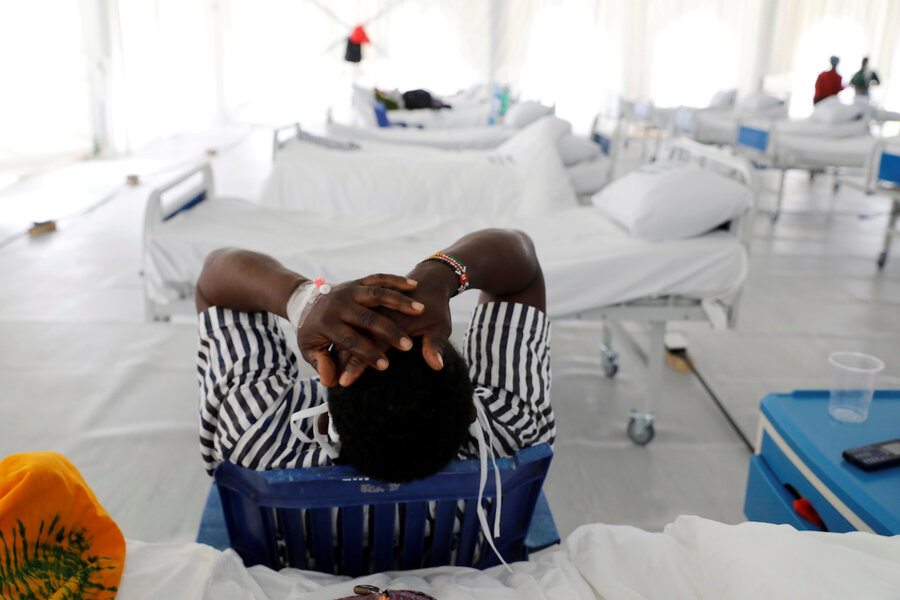When Lucyline Wanja Silas installed a 12-volt solar power unit at her home to help her children study at night, little did she know it would become essential to her and her neighbors in Gakunga village, central Kenya, during the coronavirus pandemic.
Ms. Wanja, a farm worker, said she had not made any money since the country’s lockdown started in March, but the solar photovoltaic (PV) unit she purchased in January means she no longer needs to buy kerosene for lamplight.
And she can also help others in her area who are without electricity, either because of faults on power lines around the country due to heavy rains since March or because they could not pay their bills after losing their jobs during the pandemic.
"My neighbors who are experiencing blackouts now come to me so that I can charge their phones for them for a fee," she said, adding that they pay 20 to 50 Kenyan shillings ($0.19-0.46).
"There is no money out there. I do not know what I could be using to buy kerosene if I had not installed this solar unit."
With extreme weather and the economic impact of COVID-19 plunging many Kenyans into darkness, alternative energy sources are increasingly important – even for families connected to the grid, said Pamela Mukami Njeru, a community health volunteer in the central Mt. Kenya region.
One in 4 Kenyans – mostly in rural areas – do not have access to electricity. Those who do face high costs and frequent blackouts due to an unreliable supply.
As cases of the novel coronavirus continue to climb in Kenya, the lack of reliable power can be a matter of life and death, said Ms. Njeru, whose work involves taking patients with urgent health problems to and from hospital.
"Without a power source, families facing an emergency are not able to keep their mobile phones charged to call us. This is how having a solar unit which can supply power all day and night can save lives," she told the Thomson Reuters Foundation.
In early May, Kenya suffered a nationwide blackout that lasted about six hours, and the following month, more than 20 counties lost electricity for about 10 hours.
Bernard Ngugi, managing director of the Kenya Power and Lighting Company, told reporters in June that the blackouts were the result of work being done by the company to replace damaged power lines or to upgrade the network to connect new […]
